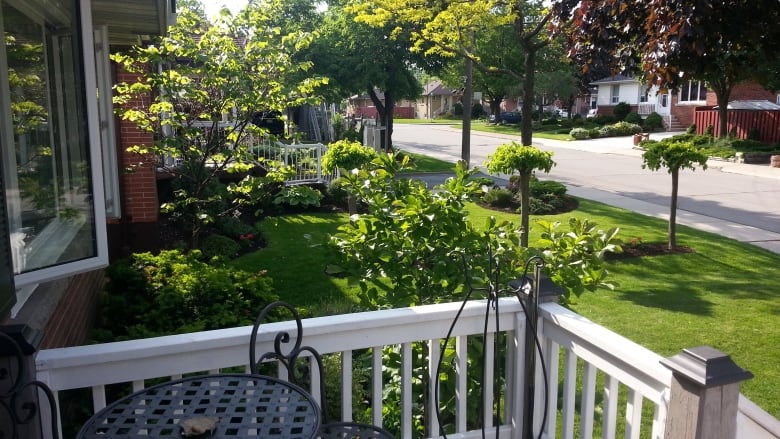'Have you thought about leaving?' A reflection on not selling your house
What is the price of leaving a home and cutting ties you've created to your community?

"Have you thought about leaving?"
It's a question I've been hearing a lot from those who follow the white-hot Hamilton housing market. And if I'm honest: yes, I have.
Tales abound of dollar-signs-in-the-eyes sellers fortunate enough to be fetching prices that only several months ago would have been thought outlandish.

That 1,000 square-foot dwellings are now going for over half a million dollars has everyone asking: What are we still doing here?
Of course, the sudden influx of cash into our city has done good. It's no time to get nostalgic for the drugs and prostitution once pervasive in some city neighbourhoods.
It also has many rightfully asking what all this means for the most marginalized.
'At what cost would I sever my ties with a city that has become my home and to which, over years, I belong?'- Doug Sikkema
Where do they go when rents skyrocket and mortgages are out of reach?
What happens to them if their jobs are in the city and inflated prices force them into commuter suburbs?
And who, if anyone, really cares when so much money is exchanging hands?
So the temptation for those who have been here before the boom, is to get out while the going's good.
Which makes me wonder: In all this frenetic activity, what happens to a city when a stable — and stabilizing — middle class seeks greener pastures?
Private homes serve a public good
"A house for sale is not a home," Wendell Berry once wrote.
His point is that once the home becomes only a commodity it ceases to be the locus of community life it should be. If we ever knew this, housing market booms tend to make us forget.
The telos changes the thing itself.

At its very best, the home is a place of hospitality and refuge for the individual and the stranger. It's a place where children might be provided the stability needed to thrive. It's where meals, grief, and joys are shared. And it's a repository of communal memory.
Strong homes are vital to a city's health, yet they take years — maybe decades — to build. Our private homes, then, serve a very public good.
I realize this may sound naively, impossibly idealistic and hardly what many homes are like. But even naive idealism isn't necessarily wrong.
And the fact that "broken homes" often elicit sadness or anger is because we often have a niggling sense of what the home should be.
What is the cost of leaving?
Yet this good becomes increasingly thin as people become increasingly transient.
And it seems that the market economy which so threatens to create a market society only catalyzes the restless search for
more.
What's lacking is fidelity. Yet the virtue of fidelity most necessary for helping us create such outward-facing homes is the very one that a hot housing market seems bent on eroding.
So I wonder: At what cost would I sever my ties with a city that has become my home and to which, over years, I belong?
Reasons to stay
Since our home has been open to friends and neighbours, what happens to my community if my home is removed from its membership?
Since I do not believe humans are replaceable widgets, what happens to those relationships we've cultivated over the years if we withdraw?
If my home is much more than a house, how might I better use it in service to the community of which I'm now a part?
Of course, there are many reasons to leave a place, and some of them are even good ones. But there are also many reasons to stay in a place, and I'd ask my neighbours to think about those, too.

Doug Sikkema is a senior researcher at Hamilton-based think tank, Cardus, and managing editor of its flagship publication, Comment. He and his wife Vanessa have been in Hamilton for almost a decade. They live on the Mountain with their four children, Eli, Avery, Jackson, and Samuel. They love this city.
Do you have a Point of View article you'd like to submit as part of our series on Hamilton's identity? Contact us at hamilton@cbc.ca.